Posts Tagged ‘“Boston personal injury lawyer”’
Smoke Alarm Recall Affects More Than One Million
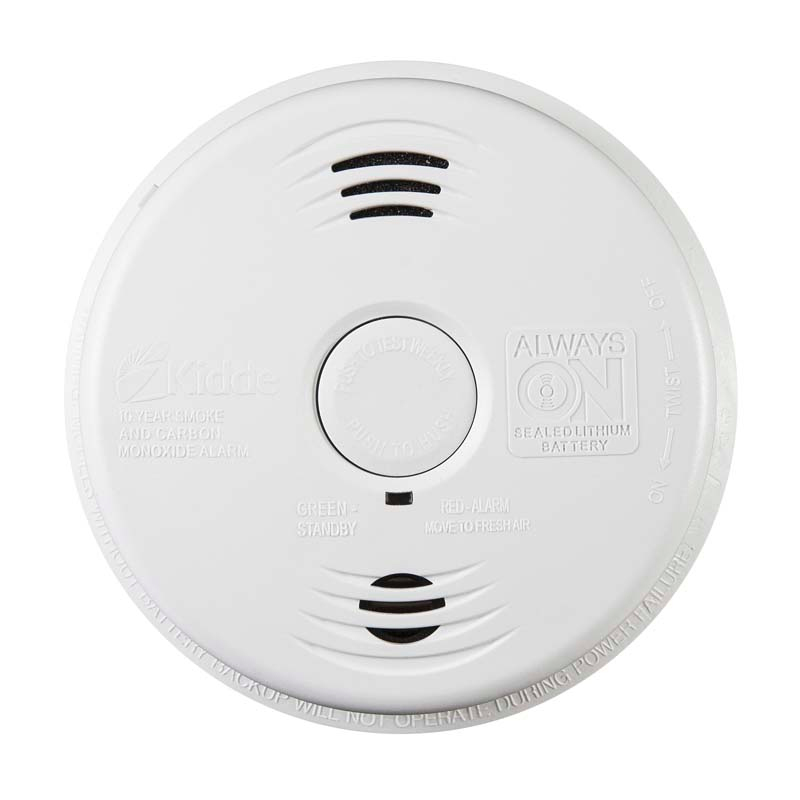 The Consumer Product Safety Commission is calling on the public to check their home smoke alarms, after more than a million units were recalled yesterday.
The Consumer Product Safety Commission is calling on the public to check their home smoke alarms, after more than a million units were recalled yesterday.
Kidde recalled 1.2 million smoke alarms in the United States and 112,000 in Canada. No injuries have been reported, but the models have a defect which may prevent them from working after a power outage. This is an important recall because each year, three to five deaths in property fires come in buildings without working smoke alarms, according to the U.S. Fire Administration.
The smoke alarms are all residential models:
- Kidde residential smoke alarm model i12010S with manufacture dates between December 18, 2013 and May 13, 2014
- Kidde Combination smoke/CO alarm il2010SCO with manufacture dates between December 30, 2013 and May 13, 2014
- Kidde Combination smoke/CO alarm model KN-COSM-IBA with manufacture date between October 22, 2013 and May 13, 2014
These smoke alarms are all hard-wired into a home’s electric system. The i12010S and il2010SCO models come with 10-year batteries inside while the KN-COSM-IBA uses replaceable AA backup batteries.
These smoke alarms look like most: white, round and are about 5 to 6 inches in diameter. Closely inspect the fine print on the front of yours for the word “Kidde.” On the backside, there is a label with the model number and manufacturing dates. “Always on” is also engraved on the front of alarms with sealed 10-year batteries.
These smoke alarms were sold at CED, City Electric Supply, HD Supply, Home Depot, Menards Inc. and other retailers. They were sold online at Amazon.com, HomeDepot.com and shopkidde.com from January 2014 through July 2014 for between $30 and $50.
Smoke Alarm Safety Tips
Daylight Saving Time. We will set our clocks back an hour for Daylight Saving Time on Sunday, November 2. The National Fire Protection Association and other safety officials recommend we also replace the batteries in our smoke alarms, test them to make sure they work and replace any models which are 10 years old.
Monthly Testing. Safety organizations also recommend we test smoke alarm batteries once a month.
Inform Others. Make sure everyone in your home knows what the smoke alarm sounds like and knows where they are located. Here is a resource for more safety and planning information.
Apartment Residents. If you rent an apartment, ask your building management company or property owner to show you the smoke alarms when you sign the lease. Contact them whenever you suspect a problem or have a question.
Read More
Talk to Your Loved Ones About Supervising Children by the Pool. This is the Most Important Job of Summer.
The long and lazy days of summer are finally here and many of us are spending them by the pool. We hope you enjoy these times with your friends and family. And please remember to think about safety.
Each year in the U.S., nearly 5,000 children under age 15 are treated for pool- or spa-related injuries at hospital emergency rooms, according to the Consumer Product Safety Commission (CPSC). Nearly 400 children under age 15 are killed in swimming pool and spa drownings. More than 75 percent of these children are under the age of 5 and the majority of these deaths occur at private residences. But injuries can happen at any pool where someone stops paying attention or is negligent, including hotel swimming pools, community centers and other places.
Prevent injuries this summer by talking about the rules of safety with your family and friends.
Pool Owners. You have a responsibility to keep your pool area safe for family and invited guests and to secure it from others. You must keep your pool behind a fence which is at least four feet tall and secures with a self-latching and self-closing gate. But we encourage you to go a step further. Try walking around your fenced-in pool area. Are there areas where a young child could easily get in on their own? If so, make adjustments.
If you have questions, a good resource is your town’s local building department.
Drain Covers. Keep children away from pool drains, pipes and other openings which could cause entrapment.
Home Spa Safety. If you have a home spa, install and use a child-proof locked safety cover to keep children out.
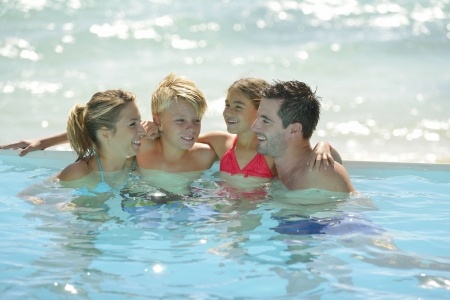
Watch Children Closely. Before the swimming season, learn CPR. Then when you head to the pool, set aside all distractions and watch the children. Avoid distractions such as reading, cell phone calls, and texting–supervision should be treated like a job.
When supervising young children, swim with them and practice “touch supervision.” For older children, watch them and be involved with them even if you are not swimming. Talk to them and let them know if they are doing something they should not be. If you are part of a group of adults watching children swim, designate someone the “pool watcher” so that the children are supervised at all times. But still supervise your own children at all times.
Likewise, at hotel and community pools, do not rely on lifeguards to watch your children.
Dress Children Appropriately. Make sure children are not wearing swimming suits or hair accessories that can get caught in pool drains or other openings.

Poolside Toys. Many pool accidents involve diving board, sports equipment, rafts and pool slides. Always look before you use. If something looks unsteady, do not use it.
Many pools no longer have diving boards because homeowner’s insurance companies have stopped providing coverage for them. But if you are going to dive, make sure the water is at least 10 feet deep.
Avoid portable pool slides, inflatable toys and using backyard trampolines with the pool. These products may not be designed for use with a pool or may be defective. In one Massachusetts case, a Colorado woman visiting the state died in 2006 after she slid down a Banzai brand inflatable slide at a backyard pool. It partially deflated, causing her to strike her head on concrete by the pool. The Consumer Product Safety Commission later recalled 21,000 of the Banzai brand inflatable slides and continues to recall unsafe pool toys and equipment each year.
Broken Glass. Do not bring beer bottles and glass out to the pool. Serious accidents can happen if the glass breaks in or near the pool and someone steps in it. If there is broken glass in the pool, it will be invisible and therefore impossible to find safely. Beyond injury, you will have a lot of clean-up. First you will have to drain the pool and then you will have to sweep it thoroughly.
Read More
Swimming Pool Safety for Families
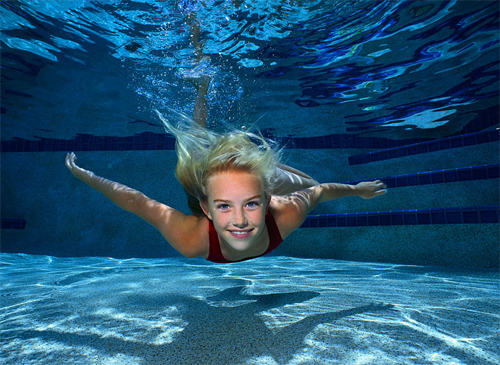 Many of us will spend the last few weeks of summer by the pool, with family and friends, at a slower pace. Relax and enjoy it, but also remember you have responsibilities if young children are around the pool. When a child is left unsupervised, tragedies can happen quickly, sometimes within seconds. In fact, a child who is submerged under water can lose consciousness within just two minutes. Within four to six minutes, permanent brain injury can occur.
Many of us will spend the last few weeks of summer by the pool, with family and friends, at a slower pace. Relax and enjoy it, but also remember you have responsibilities if young children are around the pool. When a child is left unsupervised, tragedies can happen quickly, sometimes within seconds. In fact, a child who is submerged under water can lose consciousness within just two minutes. Within four to six minutes, permanent brain injury can occur.
Swimming pool drownings are preventable. If parents, family and friends at the pool work together, you can keep swimming a safe and fun experience for young children.
Our injury attorneys share a few safety reminders:
Watch Young Children. Never leave your child alone in the water or near the water. That includes kiddie pools. At the pool, set aside all distractions: your cell phone, magazines and engaging conversation.
Take a Break from Distraction. If you become distracted or fatigued while watching your child, take a break. Ask them to come out of the pool for a little while.
Swim with your Child. Practice “touch supervision” with young children and keep them within reach at all times. As your child gets older, enroll them in swimming lessons. Make a point to get in the pool with them regularly. You can evaluate their strength as a swimmer best from the water and show them how to handle the water around other children.
Swim with a Buddy. Make sure your child knows they must always swim with someone else.
Lifejackets and Floats. Flotation tubes and rafts are not intended to support your children. To give your child extra protection, explore the U.S. Coast Guard website for information on personal flotation devices.
Lifeguards. At community pools, take note of the lifeguard stations and ask how many lifeguards are on-site. But do not rely on the lifeguards. Watch your own children.
Explain the Safety Rules to Your Child. Explain the rules of pool safety often to your child so they understand your priority is to keep them safe.
Not a Parent? If you are not a parent, listen to what your friends or relatives are telling their children. Be aware of their concerns and try to help create a safe pool environment.
Read More
Student Athlete Concussions Not Being Reported by Massachusetts High Schools
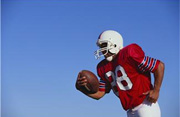
Only 31 percent of Massachusetts high schools and middle schools complied last year with a state law mandating reporting on student athlete concussions. State officials are hoping for greater compliance when new figures come due August 31.
In 2010, Massachusetts passed a law aimed at identifying and preventing concussions among student athletes. Under the law, 689 public and private schools were required to report data for the 2011-2012 academic year. However, only 213 schools submitted figures, and those figures showed that 3,450 students had suffered a head injury or suspected concussion in sports. The figures were recently reported in The Boston Globe.
To encourage reporting this year, the state has changed its form to make deadlines appear more prominent and provide definitions for data.
Massachusetts Law
A concussion is a mild traumatic brain injury caused by a force to the head, such as a fall or car accident. Symptoms typically include headaches, dizziness and memory problems. Left untreated, it can result in long-term brain impairment. In recent years, focus has been on preventing concussions in sports at every level, from the National Football League (NFL) to high schools down to Pop Warner football leagues.
Massachusetts is one of 47 states which have passed so-called “return to play” laws since 2009. The state of Washington passed the first concussion in sports law in 2009.
The Massachusetts sports concussion law requires students, parents and coaches to receive annual training to recognize the signs of a concussion. Students who sustain a concussion are required to sit out and obtain a doctor’s written permission to return to the game.
As a final step, schools must report figures to the Massachusetts Department of Public Health (DPH). Public schools and those subject to the rules of the Massachusetts Interscholastic Athletic Association (MIAA) must comply with the law.
Sports and recreational activities cause 3.8 million concussions each year in the United States, according to the Centers for Disease Control and Prevention (CDC). When an athlete suffers a concussion, they become at risk for suffering another one. Proper rest is important, and teenagers, along with older adults and young children, are believed to have longer recovery periods.
If you are the parent of a student athlete, summer is a good time to learn about the law. Ask your child’s coach when the school will hold concussion training sessions. You can also read a summary of the Massachusetts sports concussion law.
Related:
State revises concussion reporting after weak response from schools, The Boston Globe.
Pool Guests Swim with Caution
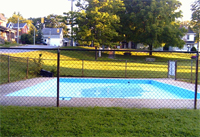
After another long winter here in Massachusetts, many of us are looking forward to some time by the pool. Whether you are a homeowner or a pool guest, take time to consider the rules of safety now so you can enjoy this time of year.
As a homeowner, you have a responsibility to keep your home reasonably safe for your family and your invited guests. If you own a pool, you have additional legal responsibilities to keep the swimming area safe. A safe swimming pool is critically important when children live at home or will be visiting. In fact, one third of all children who die between the ages of one and four are drowning victims in pools and spas, and hundreds more are critically injured.
Massachusetts regulates home swimming pools very closely. Here are some of the legal requirements and some common sense tips for the poolside.
Fencing. The law in Massachusetts requires homeowners to enclose pools with a fence at least four feet tall. It must have a self-closing lock which opens outward from the pool. Homes with a back door that opens onto a pool deck must have a pool alarm.
Diving Boards. Diving into a pool presents the risk of severe personal injury due to head and neck injuries. Diving boards are regulated for their size and height over water, and the water should be at least nine feet deep in the diving area. Shallow areas should be marked to prevent diving board injuries. Many insurance companies will request that your remove your diving board entirely as a safety precaution.
Pool Drains. Ask the pool owner where all the pool drains and suctions are and make sure your child steers clear of them. When a child is pulled into suction, they can become entrapped with a strong force, causing drowning and death. Make sure your child is not wearing any loose hair accessories or a bathing suit with loose straps that could get pulled in. Federal law changed in 2008, requiring public pools to start using drain covers to reduce suction deaths, but private homeowners may not have made the change.
Portable and Inflatable Pools. Though they are much smaller than in-ground pools, portable and inflatable pools can pose serious risks for injury, especially to toddlers.
Pool Slides. Whether it is a fixture or an inflatable, ask yourself if a slide looks like it can support you without tipping over. Ask the homeowner how long they have had the slide and if there have been any problems. In 2006, a woman died in Massachusetts after using a Banzai brand inflatable slide. The now-recalled slide collapsed under her as she slid down. She struck her head and later died.
Watch Children Closely. Give your children your complete attention while they are near the pool. Drowning claims more lives among children ages 1 to 4 than any other cause except birth defects, according to the Centers for Disease Control and Prevention. It is the second leading cause of unintentional injury-related death for children and teens ages 1 to 14. Set aside your cell phone, magazines and other distractions and watch your children. If you are in a group of adults, take turns being the “pool watcher.” Have that person step a few feet away from the conversation and concentrate solely on watching the children.
Poolside Toys. Avoid any toy or equipment that is not meant for use at the pool, including trampolines. Inspect all equipment before use.
Broken Glass. Serious accidents can happen when beer bottles and other glass are used near the pool. Broken glass at the poolside is obviously dangerous, so it makes sense to use only plastic or metal containers near the pool. Glass in the pool is even more dangerous–clear glass simply cannot be seen in the water, and will be a serious hazard to anybody using the pool. If there is broken glass in the pool, the only safe remedy is to drain the pool to sweep it out.
FDA Reports Top Consumer Updates of 2012
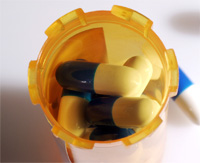 Disposal of unused drugs, dangerous diet supplements and contaminated tattoo ink led the health and safety topics which most interested consumers in 2012.
Disposal of unused drugs, dangerous diet supplements and contaminated tattoo ink led the health and safety topics which most interested consumers in 2012.
The Food and Drug Administration (FDA) reported these were among the top 10 most read topics on its Consumer Updates, which can be found on its website and are distributed through e-mail subscriptions.
How to Dispose of Unused Medicines. Consumers should follow any directions on the label for proper disposal. Otherwise, most prescription drugs can be thrown in the trash, unless the directions specify they should be flushed down the toilet. Drugs thrown in the trash should be mixed with substances such as coffee grinds, kitty litter or leftover food. Consumers should also call their city or municipal office and ask about community drug take-back programs that allow the public to bring unused drugs to a central location for safe disposal. Read more.
Mercury Poisoning Linked to Skin Products. Federal health officials warn consumers to beware and avoid use of skin products containing mercury. No product brand name was released, but consumers should check the product ingredients for “mercurous chloride,” “calomel,” “mercuric,” “mercurio,” or “mercury,” and stop using the product immediately. These products are manufactured in other countries and have been illegally sold in the United States. They have been found in at least seven states. Mercury poisoning can cause a wide range of problems, including memory problems, depression, tremors and changes in vision or hearing. You can suffer poisoning through use of these creams, as well as by breathing the vapors if you live with someone who uses one. Read more.
HCG Diet Products Are Illegal. The FDA warns consumers to avoid unsafe “homeopathic” human chorionic gonadotropin (HCG) weight-loss products. HCG is approved by FDA as a prescription drug for the treatment of female infertility and other medical conditions, but is not approved for weight loss or over the counter treatment for any use. Read more.
Warning on Hydroxycut Products. Consumers are urged not to use Hydroxycut products by lovate Health Sciences Inc., of Oakville, Ontario. The company agreed to recall the dietary supplements which were associated with a number of serious liver injuries. They are marketed for weight loss, as fat burners, as energy-enhancers, as low carb diet aids, and for water loss under the Iovate and MuscleTech brand names. Read more.
Examining Arsenic in Rice: A Work in Progress. The FDA is studying the level of arsenics in rice and rice products, which includes rice as well as foods rice is processed into such as cereals, rice beverages and rice cakes. Arsenic levels have been found in various rice products, but the FDA is not recommending consumers stop consumption at this time. It is advising consumers eat a balanced diet containing a wide variety of grains. Read more.
Tattoo Inks Pose Health Risks. The FDA is investigating after contaminated tattoo inks have caused serious infections in at least four states in 2011 and 2012, including in 19 people in New York and others in Iowa, Washington and Colorado. The agency is particularly concerned about a family of bacteria called nontuberculous Mycobacteria (NTM) that has been found in a recent outbreak of illnesses linked to contaminated tattoo inks. M. chelonae, one of several disease-causing NTM species, can cause lung disease, joint infection, eye problems and other organ infections. Read more.
Triclosan: What Consumers Should Know. The FDA has engaged in a comprehensive scientific and regulatory review of triclosan, which has been found in many antibacterial soaps, body washes and toothpastes. The agency is not advising consumers to avoid use at this time, but states those who are concerned should check labels to see if it is contained in products they are using. Read more.
FDA Expands Caution About SimplyThick. The FDA advises that infants may face an increased risk of developing a life-threatening condition if they are fed a thickening product called Simply Thick. The agency has identified 22 infants who have developed necrotizing enterocolitis (NEC) since May 2011, seven of whom have died. It says further study is needed to determine if there is an actual link between the thickening product and the condition. Read more.
FDA Expands Advice on Statin Risks. Consumers who take statins to prevent heart disease are given new recommendations, including that cognitive impairment such as memory loss has been reported by some statin users. The FDA also says routine monitoring of liver enzymes in the blood has been found to be ineffective and is no longer needed. Read more.
Treating Cushing’s Disease in Dogs. An overview of how veterinarians commonly treat the illness and what dog owners should know. Read more.
The Boston personal injury lawyers at Breakstone, White & Gluck are experienced in handling cases involving product defects and medical device recalls. If you have been injured, it is important to learn your rights. Contact our injury lawyers toll-free at 800-379-1244 or 617-723-7676 or use our contact form.
Property Owners Are Responsible for Clearing Snow and Ice
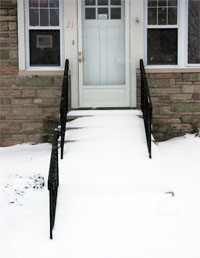 With snow in the forecast, now is the time to dig out your shovel. Clearing snow from your property has always been the right thing to do, but it is now also a requirement under Massachusetts law.
With snow in the forecast, now is the time to dig out your shovel. Clearing snow from your property has always been the right thing to do, but it is now also a requirement under Massachusetts law.
With the case of Papadopoulos v. Target Corporation, in July 2010 the Supreme Judicial Court abolished the long-standing legal distinction between natural and unnatural accumulations of snow and ice. Property owners are now required to clear both types of snow fall and may be held liable if there is a snow and ice injury on their property.
Here are a few tips from our Boston personal injury lawyers:
Remember to salt. Salt your driveway early in the storm and regularly.
Know how to use your snow blower. Turn it on before the snow fall and read the instructions. In between storms, keep it covered or in a garage.
Remember everyone who travels. You are responsible for clearing driveways, paths and all areas which can be reasonably accessed by invited guests as well as passersby and mail carriers.
Watch for tree branches. If tree branches fall on your property during the snow, consider making cuts before the next storm so no one is hurt.
Hire a snow plow. During heavy snow storms, consider hiring a snow plow.
Clear areas for emergency professionals. Help dig out fire hydrants and storm drains in your neighborhood.
Call about downed wires immediately. If you come across a downed power line, call your police department and ask them to call the utility company. Never attempt to clear the snow around it.
Stay off the streets. In the early hours of a snow storm, pedestrians can interfere with municipal plows.
Read More
Turn Your Clocks Back and Check Smoke Alarms, Carbon Monoxide Detectors
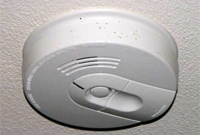 Nov. 4 is when we turn back the clocks, the usual sad good-bye to another summer and fall. At Breakstone, White & Gluck, we suggest taking a few of the extra minutes you gained to replace the batteries in your home’s smoke alarms and carbon monoxide detectors. Check whether the devices are working properly and replace them if needed.
Nov. 4 is when we turn back the clocks, the usual sad good-bye to another summer and fall. At Breakstone, White & Gluck, we suggest taking a few of the extra minutes you gained to replace the batteries in your home’s smoke alarms and carbon monoxide detectors. Check whether the devices are working properly and replace them if needed.
Smoke Alarms
Massachusetts requires a smoke alarm be installed on every habitable level of a residence as well as on the basement floor. The law requires two types of smoke alarms: photoelectric and ionization. Only photoelectric smoke detectors are to be installed within 20 feet of kitchens and bathrooms with showers. Ionization alarms are more sensitive and more likely to be disabled in these areas. Outside the 20-foot zone, both photoelectric and ionization alarms are required.
Carbon Monoxide Detectors
Carbon monoxide is a colorless, odorless, tasteless gas which can emerge without any warning. In a home, it could be caused by a gas leak in a furnace or other appliance. Early symptoms may include headache and dizziness, though inhalation can quickly lead to serious injuries, seizures, comas and death.
In Massachusetts, residences are required to have working carbon monoxide alarms on every habitable level of the home or dwelling unit. You can purchase an individual carbon monoxide detector or a dual smoke alarm and carbon monoxide detector.
If you have questions, your local fire department is a good resource for information, along with the manufacturer of your devices.
Read More
Carbon Monoxide Poisoning a Risk in Winter
 With the official start of winter just days away, it is a good time to get your home and automobile ready. While some types of home heating equipment require little preparation, it is best to review yours before the snowfall.
With the official start of winter just days away, it is a good time to get your home and automobile ready. While some types of home heating equipment require little preparation, it is best to review yours before the snowfall.
Winter home heating carries the risk for fires and carbon monoxide poisoning, which can result from a build-up of the invisible, poisoning gas. Each year, half of all home fires occur in the three months from December to February, when home heating equipment is most used. Some 1,500 Americans die each year from carbon monoxide poisoning, while more than 10,000 suffer carbon monoxide injuries, according to Children’s Hospital Boston.
Smoke and Carbon Monoxide Detectors
Make sure your smoke detectors and carbon monoxide alarms are working and properly placed. Massachusetts requires smoke alarms be installed on every habitable level of a residence as well as in basements. Carbon monoxide detectors are also required on every habitable level of the home. Additional units are recommended outside of bedrooms and sleeping areas.
Chimneys
Get your chimney professionally cleaned once a year. Report any cracks or water leaking. Fall is the best time for a cleaning. Creosote can build up in the chimney over time, lead to blockages and produce carbon monoxide. Creosote is created when firewood does not burn correctly, when wet or soft wood is placed in the fireplace and by closing the fireplace before the wood is fully burned.
Fireplaces
Open the fireplace damper before lighting and keep it open until the ashes are cool. Never close the damper before going to bed if the ashes are still warm. An open damper may prevent the build-up of poisoning gases. Light your fire with matches. Never use gasoline, charcoal lighter or another fuel because the vapors can explode. Make sure you have no flammable materials near open flames.
Furnace Vents
Your heating system will likely have a vent on your home’s exterior. The vent will have two pipes, one of which lets air in and one of which sends air back out. Make sure both of these pipes are kept clear of snow to avoid carbon monoxide from building up in your home.
Cars
Check your snow tires and decide whether you need new ones. Check your tires’ air pressure using a gauge, which you can purchase at an auto parts store. Put an emergency kit inside your car and make sure it includes a neon-glow vest, snacks, a flash light and other essential supplies. Click for a full list of emergency safety supplies.
If you have a garage, make sure you do not warm up your car inside it with a closed door. Pull your car out and heat it in the driveway to prevent carbon monoxide poisoning.
For more information about winter safety, visit these sites:
Home Safety Tips for a Safe and Healthy Winter, Home Safety Council.
Massachusetts Bicyclists Can Protect Themselves With Car Insurance
 If you’re a bicyclist, you know safety’s first. Knowing the rules of the road and riding defensively are the best ways to protect yourself from harm. But you must also think finances in case of personal injury. Between lost wages and medical costs, the bills can add up fast. Even if a motorist’s involved, their car insurance may not cover all your expenses.
If you’re a bicyclist, you know safety’s first. Knowing the rules of the road and riding defensively are the best ways to protect yourself from harm. But you must also think finances in case of personal injury. Between lost wages and medical costs, the bills can add up fast. Even if a motorist’s involved, their car insurance may not cover all your expenses.
There’s good news. You can protect yourself financially in a bike accident with a few changes to your own car insurance. The two smartest things a cyclist can do are:
- Purchase adequate amounts of Underinsured and Uninsured Motorist coverage
- Purchase adequate Medical Payments coverage
These coverages are affordable. In fact, you can access up to $100,000 of Medical Payments coverage for just $71! Read on as Boston personal injury lawyer David White shares his advice to cyclists for keeping safe and protecting their wallets.
Click here for full article.

